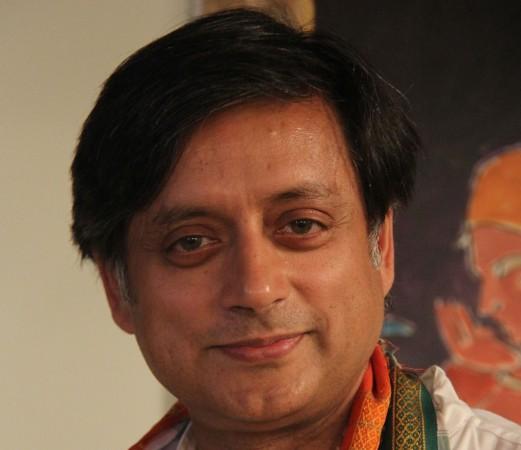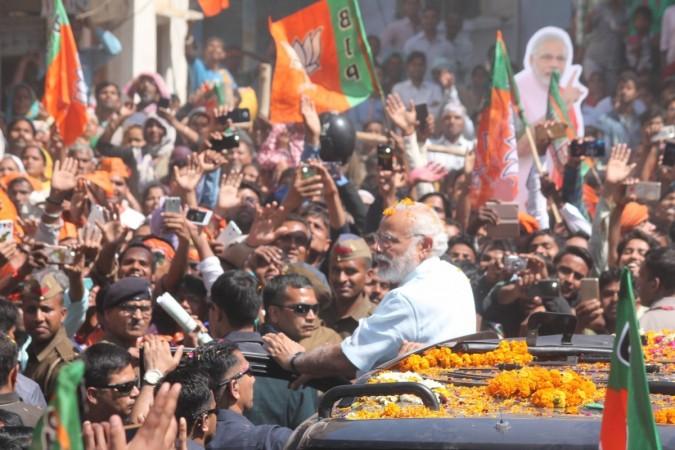
After the Congress' debacle in UP and its failure to form governments in Goa and Manipur despite finishing as the largest party in the just-held Assembly elections, there are serious signs of an impending implosion.
An online petition calling to make former Union minister Shashi Tharoor as the party's prime ministerial candidate for the 2019 Lok Sabha elections is already doing the rounds. The Grand-Old Party is facing such a serious existentialist crisis that there is a strong public conviction that vice president Rahul Gandhi is not going to help its causes any further. So a call for an alternative face has surfaced.
The initiative is positive, no doubt, for somewhere, the party needs to begin afresh. Going for a decentralised leadership is something the Congress needs urgently if it wants to recover across the country. But can Shashi Tharoor really pull things back for the Congress if he is indeed chosen as the party's face over the Gandhis for the next Lok Sabha election?
The petition has said that Tharoor is a man who is "well qualified with deep knowledge of international and national issues" and "can connect with the people of India and with world leaders." Tharoor is also a man who fits the tag of 'modern-day politician', something which the Congress lacks in its ranks. He is known to be regular on the social media like several top BJP leaders, including Prime Minister Narendra Modi, and, as the petition says, is knowledgeable and publicises his work, including in his state Kerala, extensively. The man is also popular with youngsters. In a party which has failed to imbibe the modern-day tricks of the trade, Tharoor is definitely an exception.

But yet, can the Congress really aspire to see the former UN diplomat emerging as an alternative to Modi?
Tharoor is too elitist, something which doesn't fit in today's India
Tharoor's advantage is his disadvantage. He carries the image of being an elitist leader who may not connect with the masses. He would have had a chance had this been the Nehruvian era but today, the character of the Indian democracy has changed so much that it is not easy for an erudite leadership to deliver in the ways Nehru and his fellow leaders did half a century ago.
Even if Tharoor is the PM face, his party will still be the Congress
Even if Tharoor is made the PM candidate of the Congress, it would still be a hapless party. There is very little an educated individual can do if there is not enough sound backing on the ground and by the party. Manmohan Singh has been an example not so long ago.
Politically, Tharoor's image is not clean
Though Tharoor has a following in the academic circles, and is well-respected as a writer and wordsmith, his political career has not been very clean. There were controversies over the death of his wife Sunanda Pushkar three years ago, while in 2010, he had to resign as a central minister in the wake of an IPL-related corruption charge. These will certainly curtail his chances when taking on Modi, who has a flawless individual image (does anybody really remember 2002 now?).
Tharoor is also trying to fight a battle of nationalism but it is anachronistic
Finally, Tharoor is currently engaged in fighting the British, the former colonial masters of the country. He has been taking the authorities of the UK over their predecessors' two-century old rule and exploitation in India. He has recently written a book — An Era of Darkness: The British Empire in India — highlighting the facts of history, and it has earned praise from all quarters. Tharoor's implicit strategy is quite clear. He is clever enough to understand that in the era of Narendra Modi, nationalism is a hot currency in India and as long as this wind blows, there is very little chance for the anti-Modi forces to make any decisive gain.
But Tharoor himself cannot really toe the cultural nationalism which the BJP and its ilk is propagating as that would reduce his own stature. Hence, the pundit, in his own capacity, is working on another dimension of nationalism to get some traction – for himself as well as the party – to revive the memories of Nehru's territorial nationalism.
This ploy of Tharoor, although a well thought-out one, is too theoretical and anachronistic. At a time when the BJP is sweeping one state after another, reducing the Congress to ashes, what will Tharoor's fight with the British achieve? The current India is a long distance away from the days of colonial exploitation. The British today look up to India for economic opportunities. Against these facts, how many young voters of today who believe in Modi will care about Tharoor's thesis?
The man's knowledge is immense; his writing is precious for every lover of the English language. But becoming a prime ministerial candidate in a Modified India requires something more than that.

















